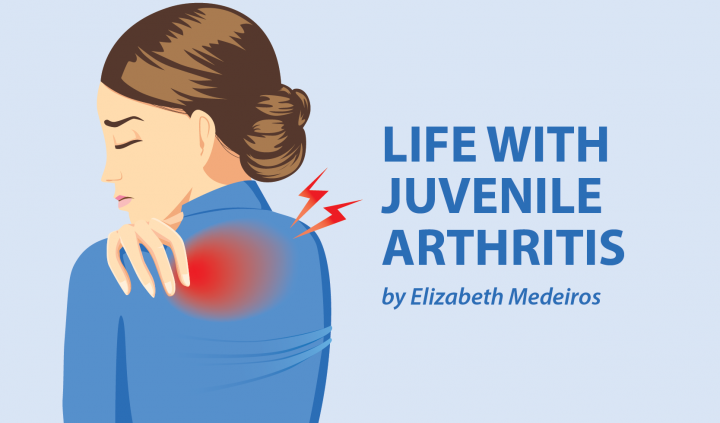A few weeks ago, I couldn’t focus my eyes on anything. Everything was blurry, and it was uncomfortable to read or look at a screen. I tried closing my eyes and refocusing, but nothing helped.
My heart pounding and hands shaking, I called to schedule an appointment with an ophthalmologist. I was a little overdue for a routine uveitis screening, and I feared I had waited too long to get checked.
Fortunately, my symptoms cleared up after a few hours. I learned it was a side effect of an over-the-counter medication I was taking, and thankfully nothing more. But it was terrifying nonetheless.
Until we knew what was going on, I was anxious that the inflammation from my juvenile arthritis had finally reached my eyes in the form of uveitis. I work as a designer and can’t risk my eyesight.
This wasn’t my first eye health scare. I had one some time ago, but that time, I was nervous that a medication I was using had damaged my sight. Kids with JA need to be vigilant about their eyesight — small changes can be a sign of serious issues.
What is uveitis?
Uveitis is a type of eye inflammation that affects the middle layer of tissue in the eye. It can be caused by injury, infection, or inflammatory diseases such as juvenile arthritis. It’s common in children with JA, especially those with the oligoarticular variant. Usually, kids with that type need eye exams every three or four months.
Kids with other subtypes of arthritis don’t usually need to be seen as often, but this can vary. I usually only needed to go once a year.
Always be on the lookout for signs of uveitis. Symptoms include:
- redness
- pain
- light sensitivity
- blurry vision
Even if there are no symptoms, it’s critical to see an ophthalmologist for uveitis checks regularly. That’s because about half of patients have no symptoms in the beginning. Unfortunately for some, the appearance of symptoms can mean the eyes already are damaged.
I know it can be tempting to skip eye appointments. I can become lazy and go a little too long between exams. When you get a clean bill of health year after year, it may seem pointless to keep going. But uveitis and other issues can crop up at any time — and the earlier you catch it, the better your outcome.
Medicine side effects
Some medicines can cause adverse effects on one’s eyes. Prednisone can cause or worsen existing glaucoma and cataracts. And Plaquenil (hydroxychloroquine) in rare cases can damage the retina. While I used it, I had comprehensive exams every three months that included taking pictures of the back of my eyes. I did have an event of blurry vision and had to be seen, but thankfully it was only a case of dry eyes. I only used Plaquenil for a few months before switching to a different, more effective treatment.
Those taking these medicines should see the eye doctor regularly and call the doctor right away if there are vision changes or pain.
Catching it early is key
Juvenile arthritis sometimes sounds like the kid version of an old person’s disease, but it’s not. It’s a severe inflammatory disease that is not exclusive to the joints. I know people with juvenile arthritis who faced serious issues and even legal blindness due to the inflammation.
As inconvenient and annoying as eye exams are, I urge you to take your child for regular checkups. Your child’s rheumatologist and ophthalmologist will let you know how often the child needs to be seen. I know it can seem invasive and unnecessary at times, especially if everything is always OK. But it’s essential to catch these issues before symptoms show up, as doing so can save your child’s eyesight.
Catching these issues early is the best way to ensure that there will be no problems down the line. And thankfully, there are many options for treating uveitis and other issues. In fact, many of the medicines already used to treat JA can treat uveitis.
There is always hope — I know many people who battled uveitis and won. But catching it early can make a world of difference.
***
Note: Juvenile Arthritis News is strictly a news and information website about the disease. It does not provide medical advice, diagnosis, or treatment. This content is not intended to be a substitute for professional medical advice, diagnosis, or treatment. Always seek the advice of your physician or other qualified health provider with any questions you may have regarding a medical condition. Never disregard professional medical advice or delay in seeking it because of something you have read on this website. The opinions expressed in this column are not those of Juvenile Arthritis News, or its parent company, BioNews Services, and are intended to spark discussion about issues pertaining to juvenile arthritis.

